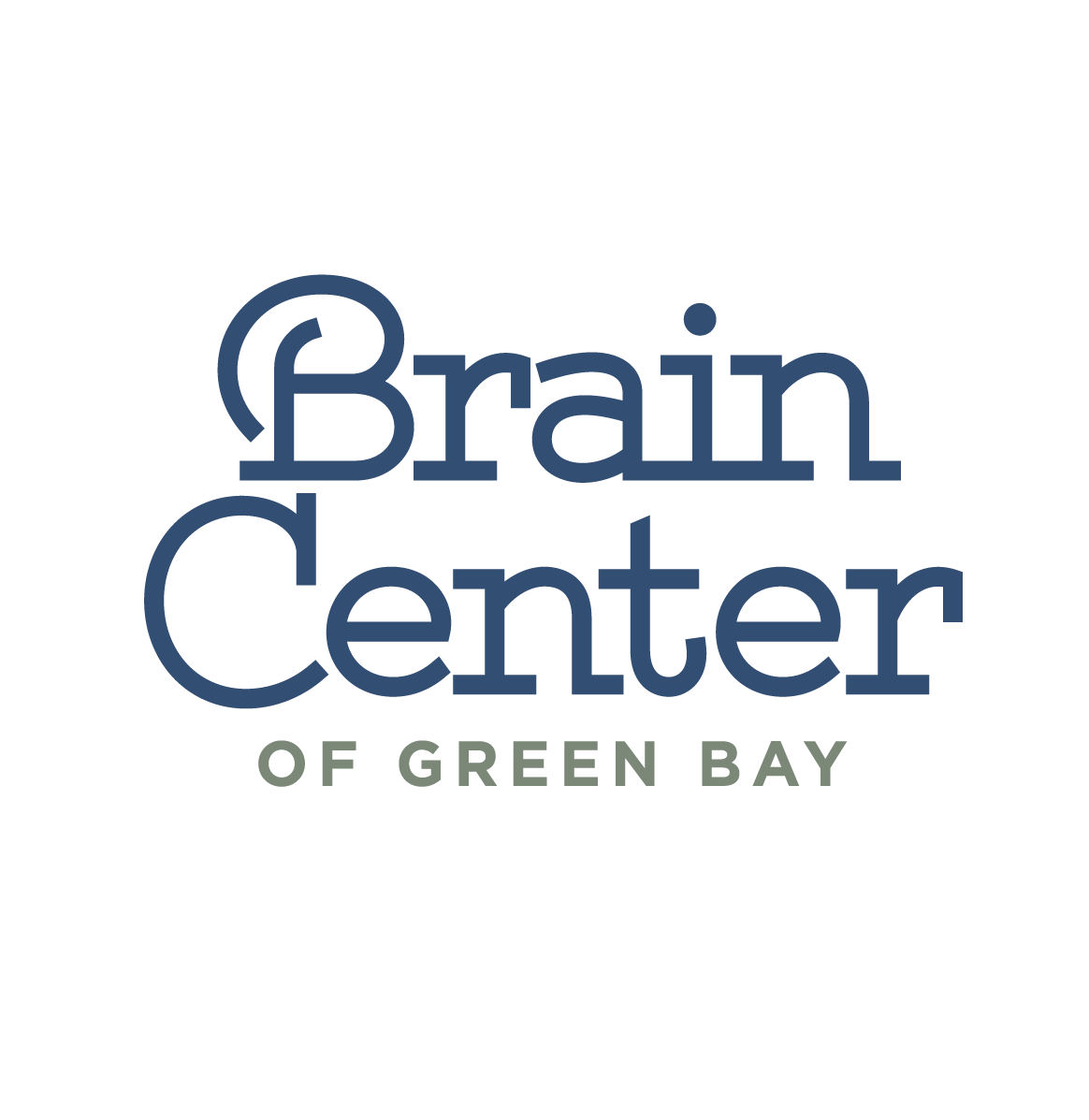
Community Outreach and Education
Your brain health awareness journey starts here! Learn about the key habits and protective measures under your control to promote healthy aging and maintain good cognitive health. All presentations can be adapted to meet the specific needs of your group, organization, congregation, or company.
Cognitive decline and neurodegenerative disease are scary topics. But they become less scary when we prioritize our brain health and are equipped with information and know-how to take care of and protect our brains. Research shows that the incorporation of good brain health practices directly translates to better overall health.
The Brain Center of Green Bay puts educating the community first. We strive to bring you the latest information and resources surrounding brain health and brain-related diseases.
Goals of the Community Outreach and Education Program
Participants of community programs will have a better understanding of brain health and things they can do to proactively care for their brains at every age.
Participants in community programs will have a better understanding of brain health and its relationship to dementia, brain disease, and cognitive impairment.
Participants will gain a greater appreciation for the complexity and healing capabilities of the amazing human brain.
Participants will gain an awareness of the prevalence and incidence of brain disease and impairments in an effort to reduce social stigmas, increase support, and promote productive conversation.
Presentation Menu
-
Learn about the key habits and protective measures under your control to promote healthy aging and maintain good cognitive health throughout life. Key presentation points will include brain foods and nutrition, brain and body benefits of physical exercise and restorative sleep, appropriate stress management and social stimulation as well as avoidance of toxins. Become aware of neuroplasticity - our brain’s amazing ability to adapt, change and create new pathways in response to experiences, new information, or damage.
-
By changing the way you use your brain every day, you can literally rewire it — and improve your brain function in the process. We’re not just talking about playing Wordle or crossword puzzles! Seek out new, unusual or exciting experiences. Working through challenges and strong emotions, and even just interacting with others, can make our brains healthier. Consider it nature’s way to improve your brain health.
-
Our brain's constant supply of fuel comes from the foods we eat. Emerging research from the fields of neuroscience and nutrition shows that by changing what you eat, you can improve your mental and emotional well-being. You can stabilize your moods. You can improve your focus. You can even make your brain grow. Join us to learn how food affects the brain’s structure and function.
-
Teaching kids about neuroplasticity helps them understand their own abilities and the changes that happen with learning something new. Teaching about a Growth mindset helps kids embrace mistakes, and be prepared to face obstacles and challenges in their daily life. The brain is like a physical muscle that gets stronger the more you use it. A fun interactive class to help kids understand the amazing “pattern-seeking brain.” When the neurons in your brain are activated in a particular pattern, it’s faster and easier for their brain to follow that same pattern in the future.
-
This presentation is focused on what to know when working with someone with a Traumatic Brain Injury. Including working with mood changes, different personalities, and how to keep participants engaged in activities. The presentation focuses on what Chronic Traumatic Encephalopathy (CTE) is and its impact on repetitive brain trauma, including symptomatic concussions and asymptomatic subconcussive hits to the head. Trauma to the brain impacts degeneration associated with memory loss, confusion, impaired judgment, impulse control problems, aggression, depression, and, eventually, progressive dementia.
-
Learn about neuroplasticity - our brain’s amazing ability to adapt, change and create new pathways in response to new information or damage. Neuroplasticity refers to the brain's ability to continue to grow, change and evolve in response to life experiences. It helps form both our good and bad habits and is the basis for all new learning, training and rehabilitation. Neuroplasticity is an active and dynamic process that occurs over our lifetime. Let’s take charge of our brains to help keep them sharp and to prevent cognitive decline!
-
Music has long been recognized not only as a source of enjoyment but also as a powerful tool for healing. Join us for an interactive educational session on how engaging with music can provide a range of emotional well-being support and physical body benefits that can positively impact brain function. This presentation will uncover therapeutic tips for individuals dealing with various health challenges and tips to incorporate whole-body benefits into music therapy.
-
The Importance of Sleep on Brain Health-Sleep is an important part of your daily routine—in fact, you spend about one-third of your life doing it! Quality sleep – and getting enough of it at the right times -- is as essential to survival as food and water. Without sleep, you can’t form or maintain the pathways in your brain that let you learn, create new memories, concentrate and respond quickly. Sleep also plays a key housekeeping role that removes toxins in your brain that build up while you are awake. This presentation will highlight the importance of restorative sleep and how to set up a sleep routine to gain maximum sleep benefits - at all ages!
-
By changing the way you use your brain every day, you can literally rewire it — and improve your brain function in the process. We’re not just talking about playing Wordle or crossword puzzles! Seek out new, unusual, or exciting experiences. Movement is a powerful outlet for creativity, imagination, expression, and connection. It can improve balance, mobility, cognition, and quality of life. This educational session explores the brain’s amazing ability to adapt, change, and create new pathways — all accompanied by music and guided movement. Our time together will offer opportunities for creative expression, whether seated or standing. All levels of mobility are welcome to attend.
-
Technology use can actually cause structural changes in the brain. Pings, alerts, rings, and notifications can shift our focus in a way that can lead to long-lasting difficulties with paying attention. Difficulties paying attention can lead to poorer performance on academic, personal, and professional tasks.
Lets embrace neuroplasticity, be mindful and balance our technology use.
-
Exercise or movement has amazing benefits for our overall health. Exercise increases energy, supports better sleep habits, boosts motivation/immune system, and helps youth handle physical and emotional challenges. Specific chemicals, such as BDNF (Brain-Derived Neurotrophic Factor) are released to promote neuroplasticity. Exercise can be as simple as playing, dancing, and being physically active.
-
An interactive dive to protect our brain from avoidance of Injury, Illness, and Toxins. The brain and spinal cord make up the central nervous system (CNS), and the CNS regulates everything that we do. It controls all of our motor and respiratory functions, mediates our senses (sight, smell, hearing, taste, touch), and allows us to form memories and process complex thoughts and emotions. To nurture our brains, we must provide them with the proper fuel, move our bodies, challenge our minds, balance technology, rest, and manage our stress levels. Let’s be mindful to ensure we do not injure them with falls, illness, or toxins that could lead to damage.
-
Let's boost our moods by understanding what stress is and how it impacts our thinking and relationships. When we encounter a stressor, our brain and body respond by triggering a series of chemical reactions that prepare us to engage in a "fight or flight response" from the stressor. This activates the amygdala, or "fear center" of the brain, and causes a series of events. The good news is we can change our feeling of being overwhelmed, anxious, and fearful. Let’s learn the tools to relax and boost our moods.
To request a presentation for your workplace: click here.
Interested in learning more about our upcoming education presentations click the button below.
“You have changed the trajectory of my life. I have many things to work on, but what I have learned today will be an important part of my present and future.”
— YMCA Staff Member present for Dr. Lulloff’s presentation
Meet Our Educators
Inspiring Wellness, One Brain at a Time
Empower Your Community—Bring Brain Health Education to Your Organization! Sign Up Today





